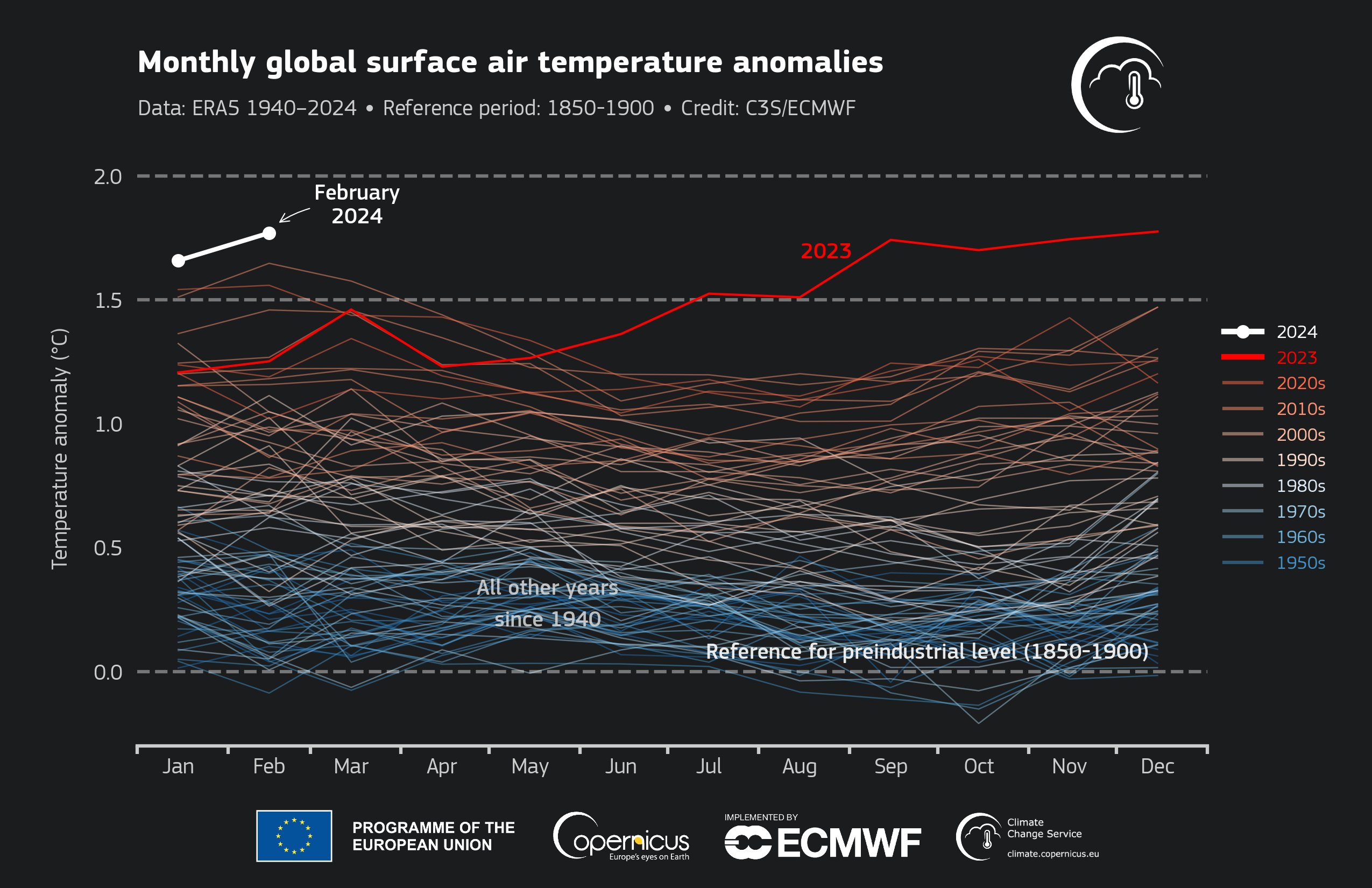Pictured is a graph of historical global sea-surface temperatures across the year from 1982-2024. Yesterday was about 0.3°C warmer than last year. Well, maybe it will go back down since this is an El Niño year? :>
Average global surface air temperature in February 2024 was 1.77°C warmer than the average February from 1850-1900. So maybe we can retire those 1.5°C warming goals now?

However, the IPCC reports that global temperatures have only risen by 1.1°C. This is because they use decade-long averages. Indeed, it is completely possible that 2025 will be cooler than 2024, but crop failures don’t care much for averages.  And if global warming has accelerated, the IPCC’s method will be a decade late to realizing it. Not that they can actually do anything about it…
And if global warming has accelerated, the IPCC’s method will be a decade late to realizing it. Not that they can actually do anything about it…


I don’t know how not to be a doomer about the climate. Seriously. Accepting any and all advice.
How am I supposed to hold any kind of optimism, about any aspect of life, when we could realistically be in a world with lifeless oceans soon? I would give anything to have our fortunes reversed. We’re shaking fists in a fucking tomb
I’m happy to give that advice.
Humanity can continue to operate warm the planet until it is inhospitable to industrial civilisation, but life will continue beyond that (so we’re not in danger of going full Venus).
We are currently at 420 ppm carbon dioxide or so. About 50 million years ago, the level was about 1500 ppm.
This is after mass extinctions of course, but life will continue for at least a few hundred million years yet
I’m a climate scientist, and not to give people a looming sense of anxiety but in all honesty you can not really be concerned enough.
There’s nothing we can do to stop climate change now short of literally removing greenhouse gases from the atmosphere. Not just stop burning fossil fuels, but stop burning fossil fuels and physically suck greenhouse gases out of the atmosphere and sequester them away. Society as we know it is going to change before 2100 as we face climate and thus ecological collapse in large areas of human habitation. Our only other options on the table are learn to live with disastrous climate change or socialism.
You’re not dead yet. Still more time to party. Is that enough optimism?